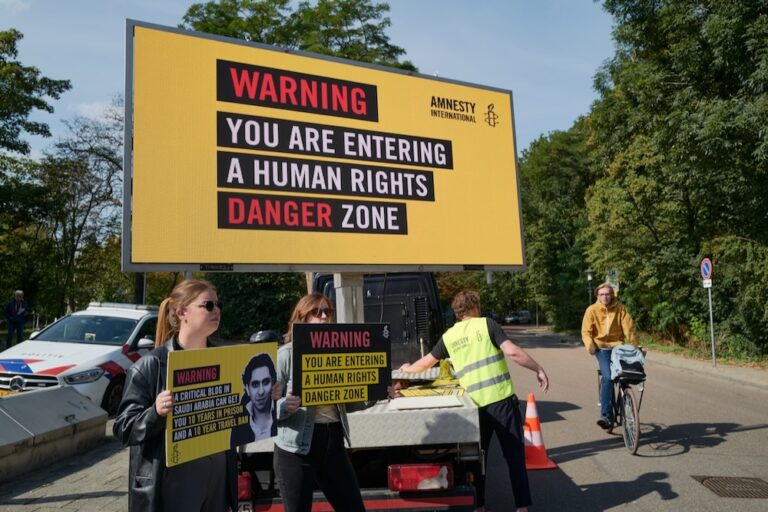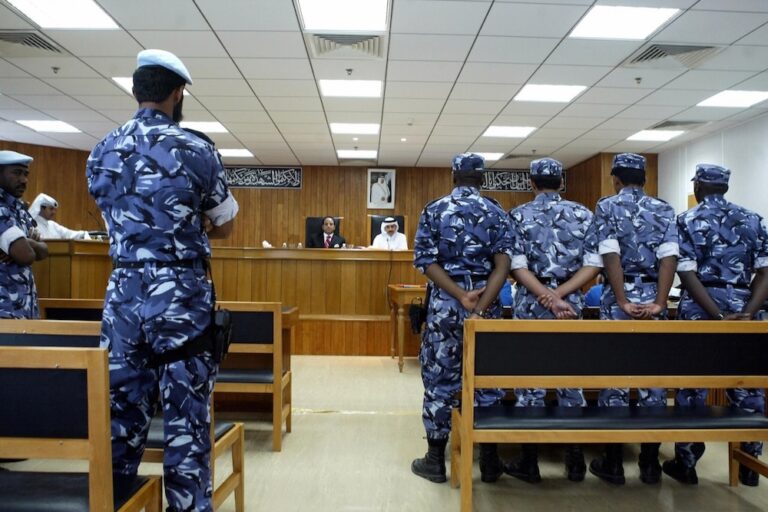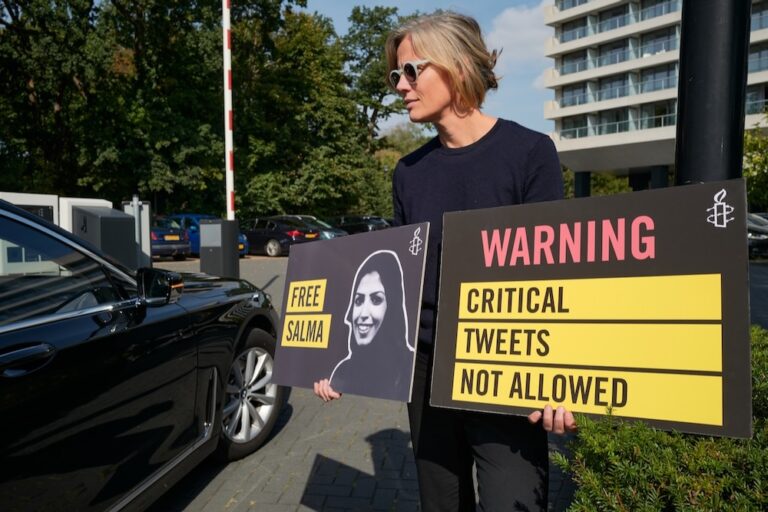Fawzan Al-Harbi, activist and co-founder of the Saudi Civil and Political Rights Association(ACPRA), received a seven-year jail sentence and travel ban on 25 June 2014.
On 25 June 2014, the Riyadh Criminal Court sentenced activist Fawzan Al-Harbi to seven years in jail and a travel ban of equal duration after his sentence has been served. He was also banned from using social media.
Charges brought against Al-Harbi included being a member of the Saudi Civil and Political Rights Association (ACPRA), inciting disobedience against the ruler, calling for demonstrations and insulting the judiciary.
Al-Harbi had been under investigation since 11 May 2013. His trial began on 4 December 2013. As per Saudi law, Al-Harbi has been released pending the Saudi Court of Appeal’s verdict, which could either uphold or reject the sentence.
Since 2011, Saudi authorities have fiercely prosecuted the founders of ACPRA, which was created by 11 activists in 2009. The founding members are: Abdel-Rahman Al-Hamed, Mohamed Fahd Al-Qahtani, Abdul Kareem Yusuf Al-Khoder, Abdullah Al-Hamed, Fahd Abdul-Aziz Oraini, Mohammed Hamad Muhaisin, Mohammed Al-Bahadi, Issa Hamed Al-Hamed, Muhanna Khalif Al-Faleh, Saud Al-Dghither, Fawzan Al Harbi, Salman Al-Rashudi, Musa Al-Qarni and Mansour Al-Ouda.
In the aftermath of the November 2009 Jeddah flood, ACPRA released a statement condemning what it called “political corruption” on the part of the government and urging the King to form an elected parliament with greater powers in order to hold officials to account.
On 21 March 2011, the authorities detained Mohammed Al-Bahadi, who was then sentenced- in a secret hearing- to four years in prison on the 10 April 2012. Fawzan Al Harbi was banned from traveling on 22 May 2014 and on 12 December, Soliman Al-Rashudi was apprehended.
Al-Rashudi was later sentenced to 15 years in prison in a case widely known as the “Jeddah Reformists”.
In July 2012, Fahd Al-Qahtani and Abdallah Al-Hamed faced trial on several charges including contributing to the establishment of an unlicensed organization. On 9 March 2013, the Riyadh Criminal Court dissolved (ACPRA) and confiscated its money and its properties including its website.
The court also sentenced Abdallah Al-Hamed to five years in prison, making the sum of the sentences issued against 11 years in total.
Mohamed Fahd Al-Qahtani was also sentenced to 10 years and a travel ban of the same period. On 24 July 2013, Abdul Kareem Al-Khoder was convicted over charges of inciting the public and taking part in an unlicensed organization. He was sentenced to three years in jail, besides a five-year suspended sentence, which is to be implemented in case of his participation in the founding of another organization or taking part in any demonstration upon his release. Al-Khoder was barred from traveling for ten years as well.
“Saudi authorities still carry out their unfair judicial prosecutions against human rights activists in contravention of all the international charters and conventions concerned with human rights that Saudi Arabia has signed,” said ANHRI, “These prosecutions also violate the Universal Declaration of Human Rights, and are a perpetuation of the authorities’ severe security policy which has resulted in the detention of thousands of prisoners of conscience who languish behind bars today.”
ANHRI calls on all organizations concerned with freedom and democracy to push their governments to pressure Saudi Arabia to fix its human rights crisis. Moreover, it calls on the Saudi authorities to provide safety, security and freedom to activists operating inside the country.


